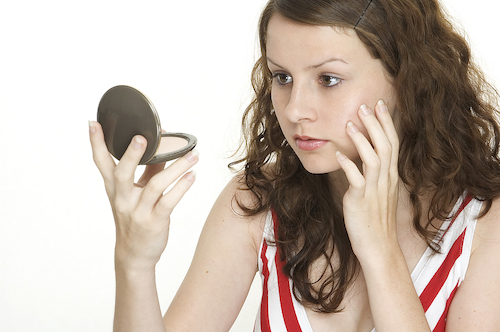 Teenagers who are unhappy with how they look have a significantly heightened risk of depression by adulthood.
Teenagers who are unhappy with how they look have a significantly heightened risk of depression by adulthood.
In a study published in the Journal of Epidemiology and Community Health, researchers found the increased risk of depression ranged from 50 per cent to 285 per cent, with boys being more likely to experience severe depression than their female peers.
“The Centre for Appearance Research at the University of the West of England conducts research on the psychology of body image and body dissatisfaction, but this topic is often not seen as a public health issue,” Anna Bornioli, PhD, author of the study and a senior researcher at Erasmus University Rotterdam told Theravive.
“We believe that disliking one’s body can have consequences for mental health, and we looked at the data to look into the issue more closely. Identifying the risk factor for mental health issues is crucial, as this can help preventing mental health problems (and issues such as depression are very widespread – almost 300 million people globally suffer from it).”
Formally known as body dissatisfaction, 61 per cent of teenagers around the world dislike their physical appearance. Body dissatisfaction is a known risk factor for unhealthy behaviors, eating disorders and poor mental health.
In undertaking the research, Bornioli and colleagues used data from nearly 4000 people gathered as part of the Avon Longitudinal Study of Parents and Children (ALSPAC). The study tracked women and the children who were born in 1991 and 1992 in Somerset, England.
At the age of 14, 3753 of the teens involved in the study rated their satisfaction with their physical appearance. On a five-point scale with 0 equating to extremely dissatisfied and 5 equating to extremely satisfied they scored their weight, figure, build and specific breasts including buttocks, thighs, stomach, waist, hips, legs, hair and face.
Both the male and female participants said they were overall mildly satisfied with their bodies. Girls were more dissatisfied than their male peers.
32 per cent of the girls were dissatisfied with their weight, as were 14 per cent of boys. 27 per cent of girls and 14 per cent of boys were dissatisfied with their figure.
Girls were more likely to dislike their stomach, thighs and weight but scored their hair and hips well. Boys were more likely to dislike their build, stomach and hips.
When the participants were 18, their depressive symptoms were assessed. The researchers found the girls were more likely to experience depressive episodes than boys.
10 per cent of the girls reported experiencing at least one mild episode of depression, whilst 5 per cent of boys had experienced the same. Almost seven per cent of the girls and nearly three per cent of boys had experienced at least one moderately severe episode of depression. 1.5% of girls and less than 1% of boys reported experiencing a severe episode of depression.
The researchers found that body dissatisfaction experienced at the age of 14 was predictive of episodes of depression at all levels of severity among girls, and mild and severe episodes of depression among boys by age 18.
“Feeling unhappy with our body can have negative consequences for our mental health, especially among teenagers, so it is important to change the way teenagers (but also adults) think about their body,” Bornioli said.
“Body dissatisfaction in adolescence can have other bad consequences (we found in another study that it can also increase the likelihood of starting to smoke or use drugs in later years, for example), so it is especially important to start working on positive body perceptions during early years (childhood and adolescence) as these age periods are especially vulnerable, also due to social media influence.”
She says parents can play a helpful role in ensuring teenagers have healthy views of their body.
“Generally, it would be helpful for parents to not comment on their children’s appearance nor talk about their own. But parents might need help themselves, to learn about appearance ideals and challenge them. In addition, accepting one’s body, thinking of it as something to take care of and nurture, with healthy food or healthy lifestyle, would also help to change our perception. Our body should be seen as an instrument, not an ornament,” she said.
“We believe that social media had a role in these dynamics: kids are heavily exposed to beauty ideals through social media. This constitutes an additional source of pressure on appearance, which is compounded by the fact that people in the general public can airbrush their own photos on social media; and thus serve as an additional target of comparison for their friends… Hence, parents might help with this; it would be helpful to teach kids how to use social media in a healthier and more conscious way.”
Elizabeth Pratt is a medical journalist and producer. Her work has appeared on Healthline, The Huffington Post, Fox News, The Australian Broadcasting Corporation, The Sydney Morning Herald, News.com.au, Escape, The Cusp and Skyscanner. You can read more of her articles here. Or learn more about Elizabeth and contact her via her LinkedIn and Twitter profiles.